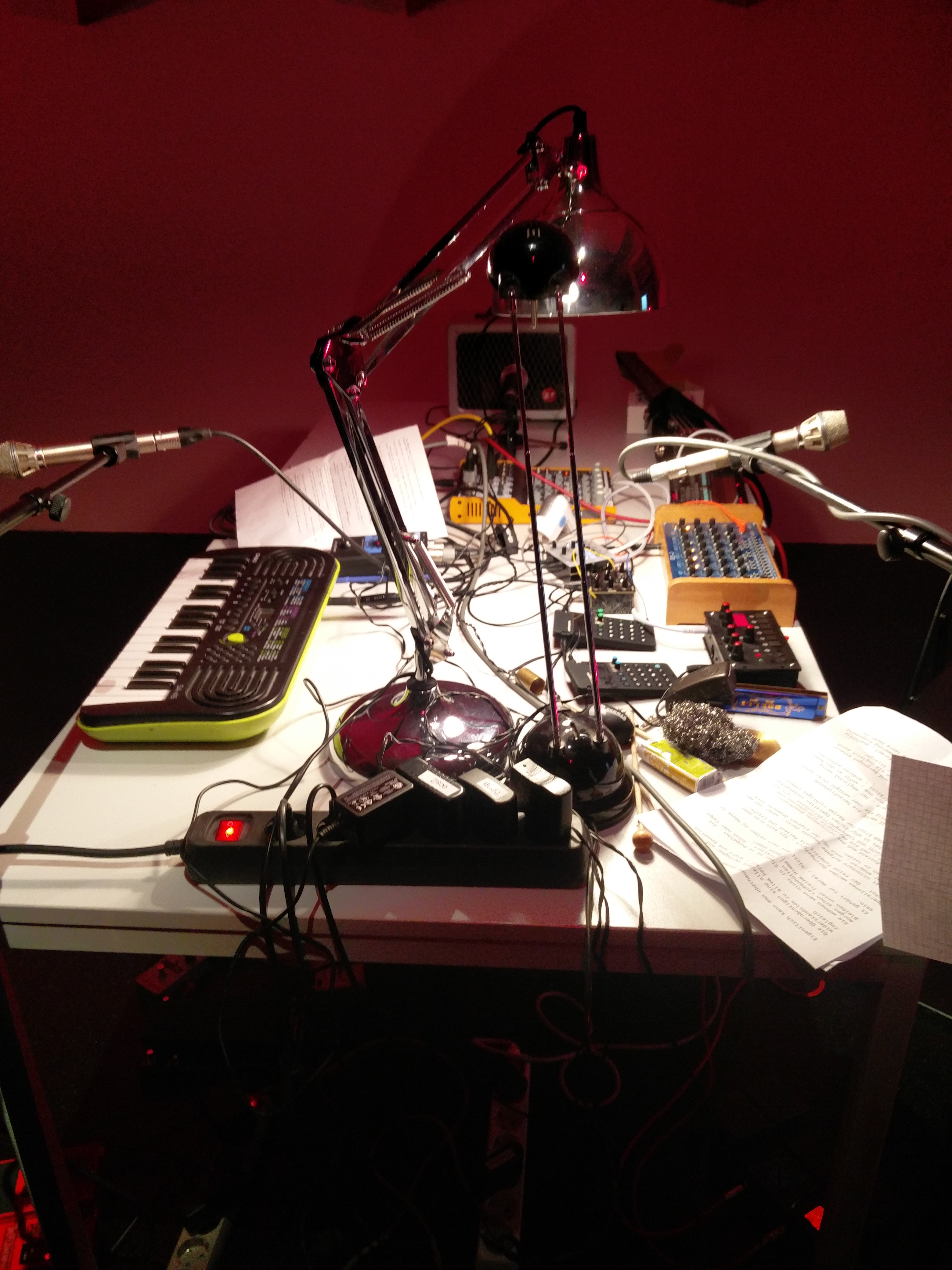“Gründler and Lepenik singen Adorno"
or two solo entertainers play simultaneously and together.
28t Nov. 19h Künstlerhaus Graz
Link to Vimeo Video
(photo by Vesna Pecapa)
Robert L. singing and (pop) accompaniment.
Seppo G. singing and (rhythmic) accompaniment
Gründler und Lepenik singen Adorno, ein Massenbetrug from Künstlerhaus, Graz on Vimeo.
The theme of this year’s Styrian Autumn touches on discourses of our present-day reality in the context of the historic period of upheaval shortly before the Second World War: Under the title “Grand Hotel Abyss” (Grand Hotel Abgrund), which was created in 1933 in the face of a diffuse, ambivalent feeling of prosperity and prosperity Progress, but also increasing insecurity, isolation and fear of the emerging dangers of fascism was coined by the Hungarian philosopher Georg Lukács. In dealing with the historical developments it is also about possible noteworthy connections and developments. Lukács’s ideas influenced many theorists of his time; in addition to Ágnes Heller, Leo Kofier or Rudi Dutschke, the work of the Frankfurt School is also significant. Nevertheless, Lukác’s works have been repeatedly criticized, especially with regard to the terms “dialectic” and “reification”. As a critic Theodor W. Adorno opposed the Marxist argument of Georg Lukács, at the same time interest and a certain development can be seen. Common to both is the discursive, public and sometimes also suggestive engagement with the society and politics of their time, and the challenge of their potentials to a (supposedly?) Better future. Adorno’s pointed statements about music (Schönberg vs. Jazz), popular culture and the cultural industry are also well known. However, after Georg Lukács in “The Destruction of Reason” described Hegel’s entire German bourgeois philosophy as a reactionary and irrational response to the phenomenon of the class struggle, Adorno rightly says that Seppo Gründler and Robert Lepenik are witty and eclectic in their pop songs. His songs are used as material for chorus or stanza, which arise spontaneously in improvisation. “For me, the Minima Moralia were a kind of art of living,” he said Founder of the Frankfurt-based Merve Verlag, Peter Gente, on the vademecum of the 1968: “Reflections from the Damaged Life”, which also form the lyrics of the performance, not least because of the famous quote: “There is no real life in the wrong”. Gründlers and Lepenik’s many years of experimental work at the interface between pop and serious music are just as similar in this project of a joyous science. Two solo entertainers play simultaneously and together: Lepenik vocals and (pop) accompaniment, Gründler vocals and (rhythmic) accompaniment.
Seppo Gründler (* 1956 Klagenfurt, lives in Graz) is a sound and media artist who locates himself in the field between guitar, software and electronics. Gründler is co-organizer of the Styrian improvisation orchestra, doctor of physics and guest professor for sound design at the Danube University Krems and assistant professor at the FH Joanneum, member of the board of the Institute for Media Archeology and the Society for the Distribution and Distribution of New Music.
Robert Lepenik (* 1966 Graz, lives in Graz) studied classical guitar at the University of Music and Performing Arts in Graz. In his artistic work he deals intensively with improvisation and electronic music. Lepenik is a member of the artist collective TONTO and crew8020_music and the band projects The Striggles, The Guitars of Love, Melville, LaLeLoo and Fetish 69 and has so far released twelve recordings with their own work. In addition, he acts as a curator of various film series and writes music for theater and film.
